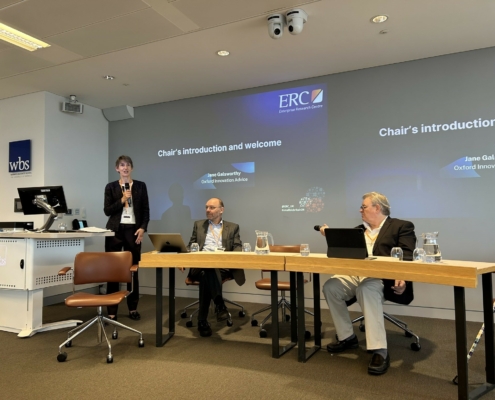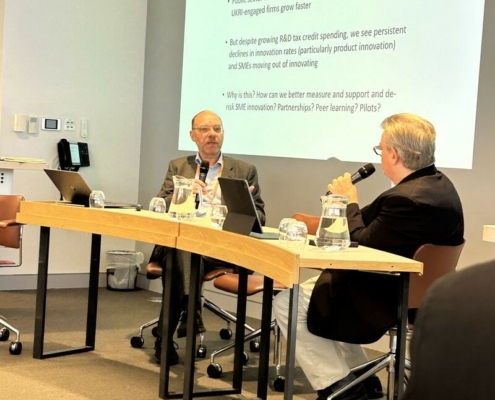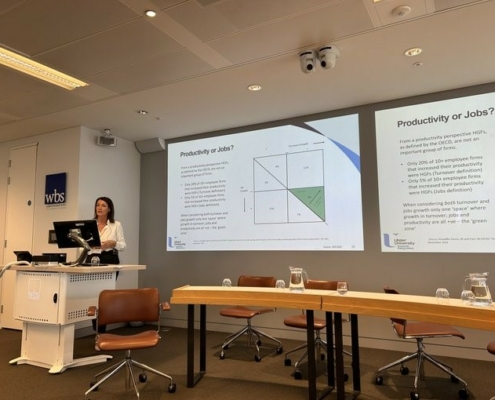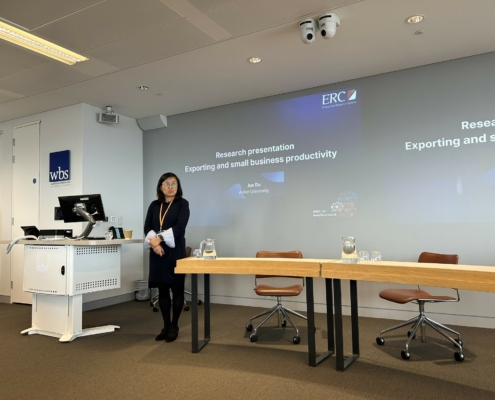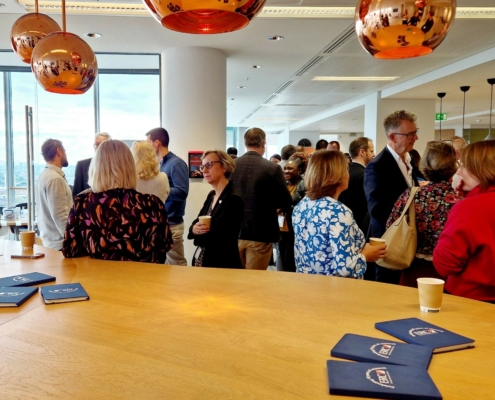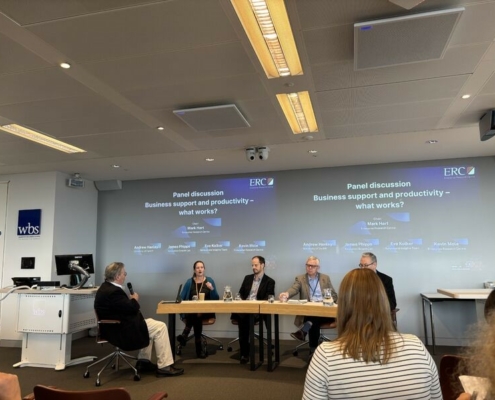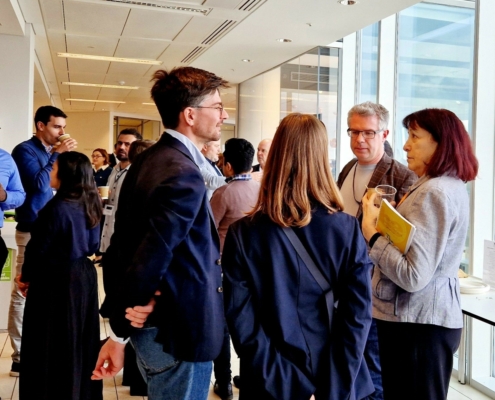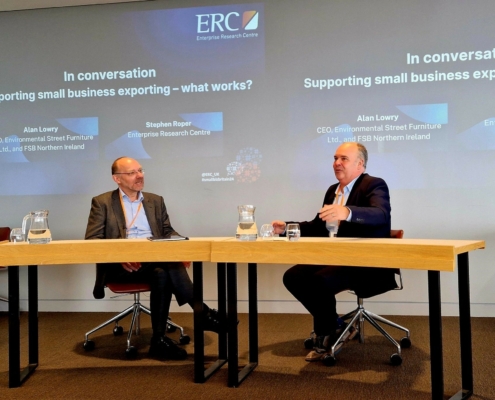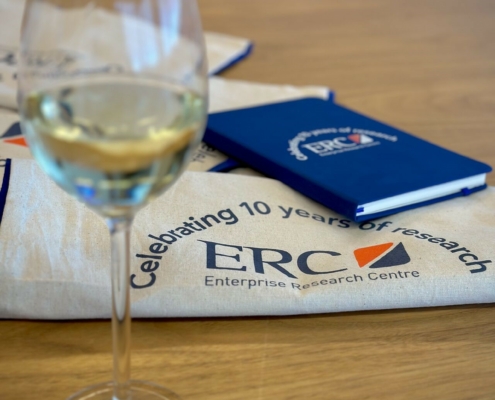State of Small Business Britain Conference 2024
This year’s State of Small Business Britain Conference took place on 3rd October at The Shard in London, facilitated by ERC Steering Group Chair Jane Galsworthy. This was the ninth ERC annual conference, an event which brings together a mixed, well-informed community of academics, policymakers, practitioners and business leaders interested in small business policy for a day of evidence-informed discussion and debate. The conference this year involved around 90 in-person delegates, as well as being streamed online.
The focus of the 2024 conference was on one important question, namely, how we can better support small businesses? The country’s small businesses have had to deal with many challenges over the past five years related to significant socio-economic events, including for example the Covid-19 pandemic and the cost-of-living crisis. Taking place in the early months of a new Government, and just ahead of an Autumn budget, the conference provided a timely opportunity to discuss how future business support might be best structured and delivered to enable small businesses to not only survive, but also thrive, in the years ahead, informing policy work currently being undertaken.
ERC Directors Stephen Roper and Mark Hart started the conference by setting out five persistent small business ‘conundrums’ that have been surfaced in the research done by the ERC and others. These included issues with the proportion of businesses scaling, with declining business dynamism, and stagnant productivity. These themes were explored through the day through a range of presentations and discussions, with a focus on looking at potential solutions. Key points from the discussion included:
- The difficulty of achieving growth in turnover, jobs and productivity at the same time and the need to recognise this when setting the aims for business support programmes.
- The importance of identifying, nurturing and encouraging the capabilities and ambitions of the country’s business leaders.
- The need to recognise the crucial role played by skilled business advisers and the trusted relationships built at local levels.
- The value of peer networks and of nurturing ongoing communities of support beyond initial support programmes.
- The need to tackle fragmentation and create more consistency in support – providing a clear ‘front door’ to small business support in a messy landscape.
A report summarising the presentations and discussions that took place at the conference will be published shortly. In the meantime, the presentation slides from the day are available here and the coverage from WBS on the conference is available here
